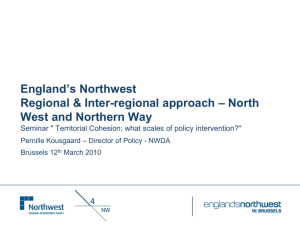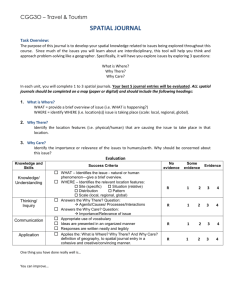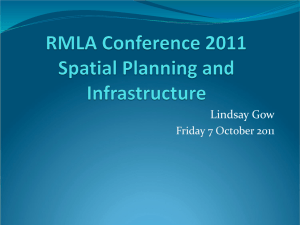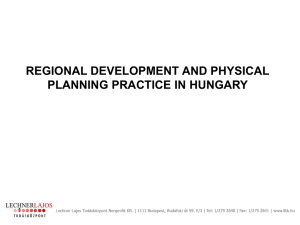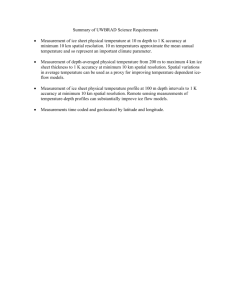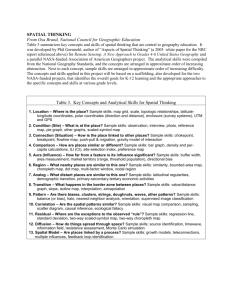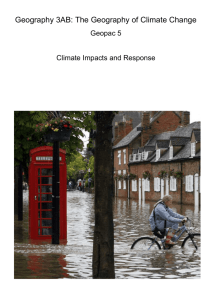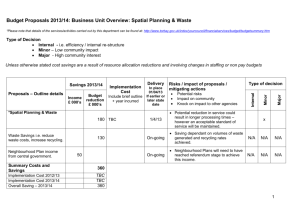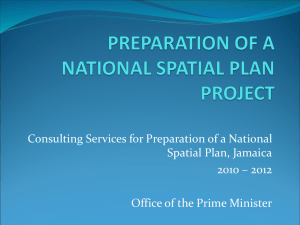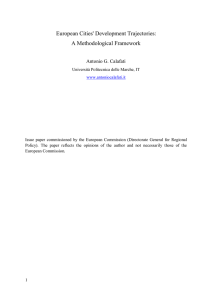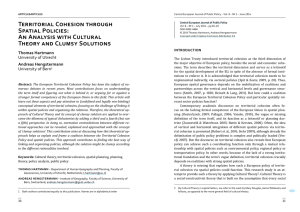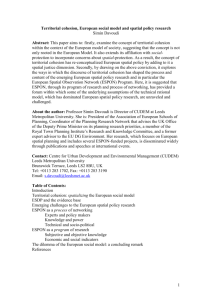Spatial Analysis
advertisement
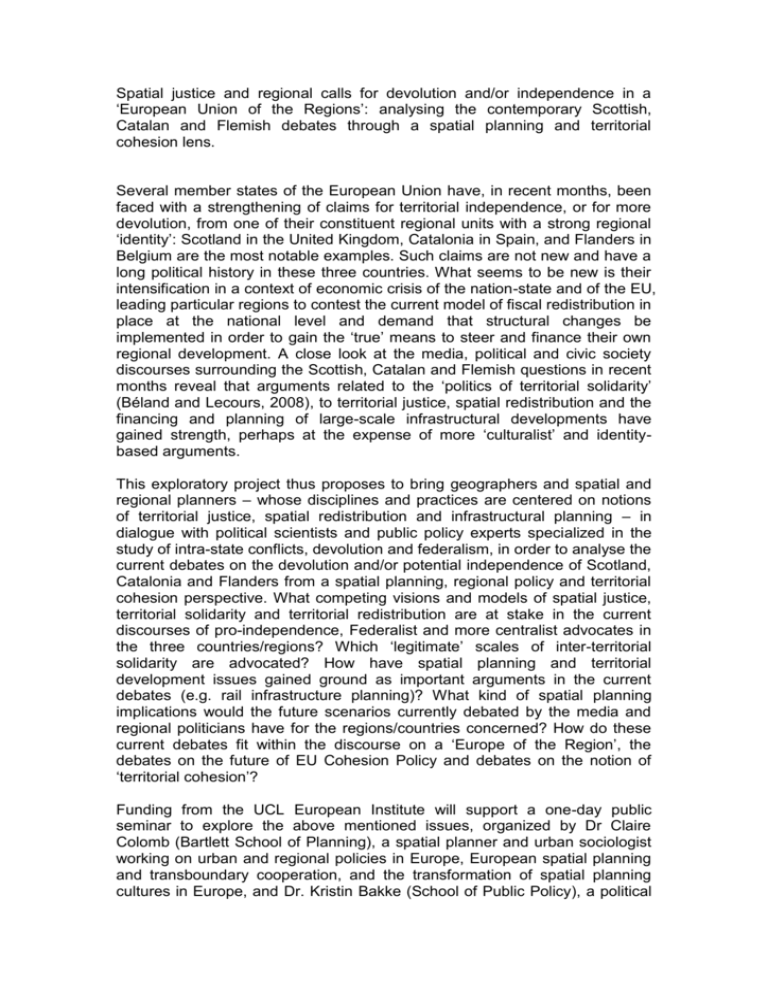
Spatial justice and regional calls for devolution and/or independence in a ‘European Union of the Regions’: analysing the contemporary Scottish, Catalan and Flemish debates through a spatial planning and territorial cohesion lens. Several member states of the European Union have, in recent months, been faced with a strengthening of claims for territorial independence, or for more devolution, from one of their constituent regional units with a strong regional ‘identity’: Scotland in the United Kingdom, Catalonia in Spain, and Flanders in Belgium are the most notable examples. Such claims are not new and have a long political history in these three countries. What seems to be new is their intensification in a context of economic crisis of the nation-state and of the EU, leading particular regions to contest the current model of fiscal redistribution in place at the national level and demand that structural changes be implemented in order to gain the ‘true’ means to steer and finance their own regional development. A close look at the media, political and civic society discourses surrounding the Scottish, Catalan and Flemish questions in recent months reveal that arguments related to the ‘politics of territorial solidarity’ (Béland and Lecours, 2008), to territorial justice, spatial redistribution and the financing and planning of large-scale infrastructural developments have gained strength, perhaps at the expense of more ‘culturalist’ and identitybased arguments. This exploratory project thus proposes to bring geographers and spatial and regional planners – whose disciplines and practices are centered on notions of territorial justice, spatial redistribution and infrastructural planning – in dialogue with political scientists and public policy experts specialized in the study of intra-state conflicts, devolution and federalism, in order to analyse the current debates on the devolution and/or potential independence of Scotland, Catalonia and Flanders from a spatial planning, regional policy and territorial cohesion perspective. What competing visions and models of spatial justice, territorial solidarity and territorial redistribution are at stake in the current discourses of pro-independence, Federalist and more centralist advocates in the three countries/regions? Which ‘legitimate’ scales of inter-territorial solidarity are advocated? How have spatial planning and territorial development issues gained ground as important arguments in the current debates (e.g. rail infrastructure planning)? What kind of spatial planning implications would the future scenarios currently debated by the media and regional politicians have for the regions/countries concerned? How do these current debates fit within the discourse on a ‘Europe of the Region’, the debates on the future of EU Cohesion Policy and debates on the notion of ‘territorial cohesion’? Funding from the UCL European Institute will support a one-day public seminar to explore the above mentioned issues, organized by Dr Claire Colomb (Bartlett School of Planning), a spatial planner and urban sociologist working on urban and regional policies in Europe, European spatial planning and transboundary cooperation, and the transformation of spatial planning cultures in Europe, and Dr. Kristin Bakke (School of Public Policy), a political scientist working on intra-state determination movements. conflicts, decentralization and self-
